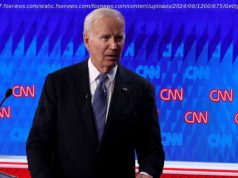A century ago the U. S. celebrated its first Memorial Day after World War I. The L.A. Times editorial board waxed poetic, albeit somewhat blind to history.
There’s an added poignancy — a freshness — to Memorial Day observances that come shortly after the end a major war. A century ago, Memorial Day fell just six months after the end of the Great War, which, over time and after another great war, became known as World War I. It’s quite a world when you can number your global conflagrations. And World War I had been an exceedingly brutal affair, claiming the lives of nearly 117,000 American soldiers — more than half of them from illness — and an estimated 8.5 million soldiers worldwide.
At the time, it was the largest and deadliest war that the world had endured, except for the 1850-1864 Taiping Rebellion in China. The fighting devastated Europe. It collapsed four monarchies, began to erode the British Empire’s stature as a major world power, left most of the continent deep in debt, helped propel the rise of the Bolsheviks and the Soviet Union, and prepared the ground for fascism in Italy and Germany, which, of course, led to that second great war.
World War I also left the U. S. split over what the nation’s proper role on the world stage should be. The Spanish-American War 20 years earlier was, in a sense, the nation’s coming-out party as an international power, and the ensuing Philippine-American War embroiled us in a precursor of wars to come: insurgents seeking to eject American troops they saw as occupiers.
But when the U. S. entered World War I three years after it had begun and turned the tide in favor of the Allies, the nation’s global status as a first power was undeniable, even if the American people embraced isolationism in the postwar years until the nation was dragged, again, into a world war.
The war wounds were still fresh on Memorial Day 1919, as were the passions that war engendered. The Los Angeles Times editorial board marked the somber celebration in tones reverential to the dead, but also jingoistic as to American might, and, to put it delicately, oblivious to elements of American history.
“Never has an American soldier fallen in a war of conquest,” the editorial board wrote. “They have all fought to remove the menace of oppression from the earth, actuated by the ideal that their sacrifice would hasten the day when war and despotism would no longer be possible. The American sword has never been unsheathed except in defense of human rights; it has never propped a tottering throne, never oppressed a neighbor.”
Wouldst that were true. The U. S. used its military to “pacify” native tribes as primarily white Europeans and their descendants expanded the nation westward from the Atlantic Coast. The Mexican-American War of 1846-48 was launched after military skirmishes over competing interests in Texas, and it ended with the U. S. taking control of 525,000 square miles of land (half of Mexico’s prewar territory) covered now by all or parts of California, Arizona, Colorado, Nevada, New Mexico, Utah and Wyoming. That land grab was President Polk’s intent all along, part of his embrace of Manifest Destiny — the notion that the U.






